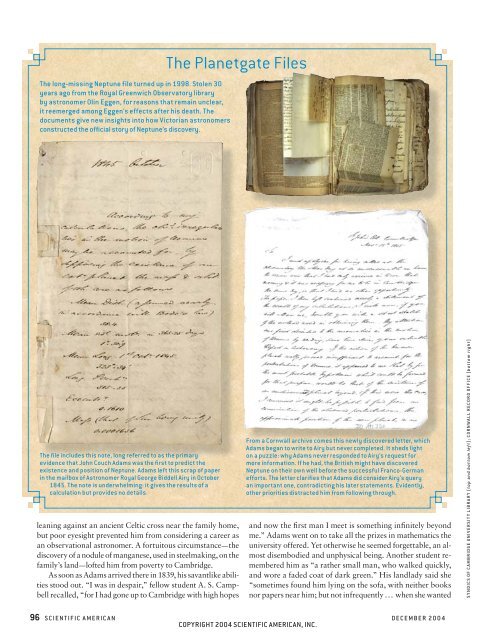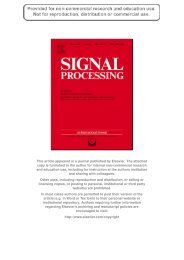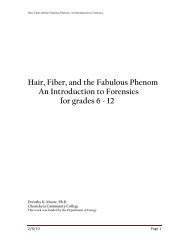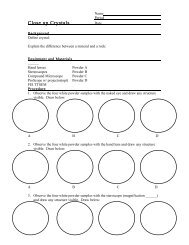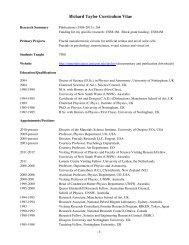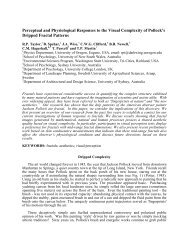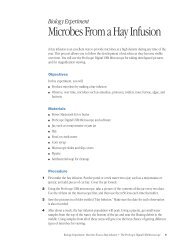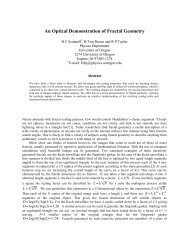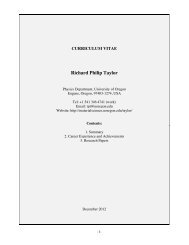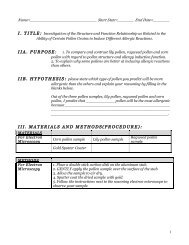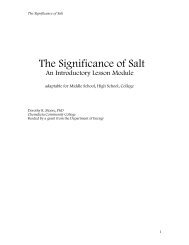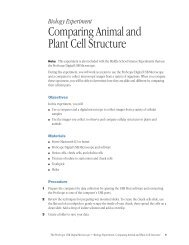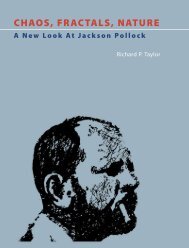December 2004 - Materials Science Institute - University of Oregon
December 2004 - Materials Science Institute - University of Oregon
December 2004 - Materials Science Institute - University of Oregon
Create successful ePaper yourself
Turn your PDF publications into a flip-book with our unique Google optimized e-Paper software.
The long-missing Neptune file turned up in 1998. Stolen 30<br />
years ago from the Royal Greenwich Observatory library<br />
by astronomer Olin Eggen, for reasons that remain unclear,<br />
it reemerged among Eggen’s effects after his death. The<br />
documents give new insights into how Victorian astronomers<br />
constructed the <strong>of</strong>fi cial story <strong>of</strong> Neptune’s discovery.<br />
The fi le includes this note, long referred to as the primary<br />
evidence that John Couch Adams was the fi rst to predict the<br />
existence and position <strong>of</strong> Neptune. Adams left this scrap <strong>of</strong> paper<br />
in the mailbox <strong>of</strong> Astronomer Royal George Biddell Airy in October<br />
1845. The note is underwhelming: it gives the results <strong>of</strong> a<br />
calculation but provides no details.<br />
The Planetgate Files<br />
leaning against an ancient Celtic cross near the family home,<br />
but poor eyesight prevented him from considering a career as<br />
an observational astronomer. A fortuitous circumstance—the<br />
discovery <strong>of</strong> a nodule <strong>of</strong> manganese, used in steelmaking, on the<br />
family’s land—l<strong>of</strong>ted him from poverty to Cambridge.<br />
As soon as Adams arrived there in 1839, his savantlike abilities<br />
stood out. “I was in despair,” fellow student A. S. Campbell<br />
recalled, “for I had gone up to Cambridge with high hopes<br />
From a Cornwall archive comes this newly discovered letter, which<br />
Adams began to write to Airy but never completed. It sheds light<br />
on a puzzle: why Adams never responded to Airy’s request for<br />
more information. If he had, the British might have discovered<br />
Neptune on their own well before the successful Franco-German<br />
efforts. The letter clarifi es that Adams did consider Airy’s query<br />
an important one, contradicting his later statements. Evidently,<br />
other priorities distracted him from following through.<br />
and now the fi rst man I meet is something infi nitely beyond<br />
me.” Adams went on to take all the prizes in mathematics the<br />
university <strong>of</strong>fered. Yet otherwise he seemed forgettable, an almost<br />
disembodied and unphysical being. Another student remembered<br />
him as “a rather small man, who walked quickly,<br />
and wore a faded coat <strong>of</strong> dark green.” His landlady said she<br />
“sometimes found him lying on the s<strong>of</strong>a, with neither books<br />
nor papers near him; but not infrequently ... when she wanted<br />
96 SCIENTIFIC AMERICAN DECEMBER <strong>2004</strong><br />
COPYRIGHT <strong>2004</strong> SCIENTIFIC AMERICAN, INC.<br />
SYNDICS OF CAMBRIDGE UNIVERSITY LIBRARY (top and bottom left); CORNWALL RECORD OFFICE (bottom right)


